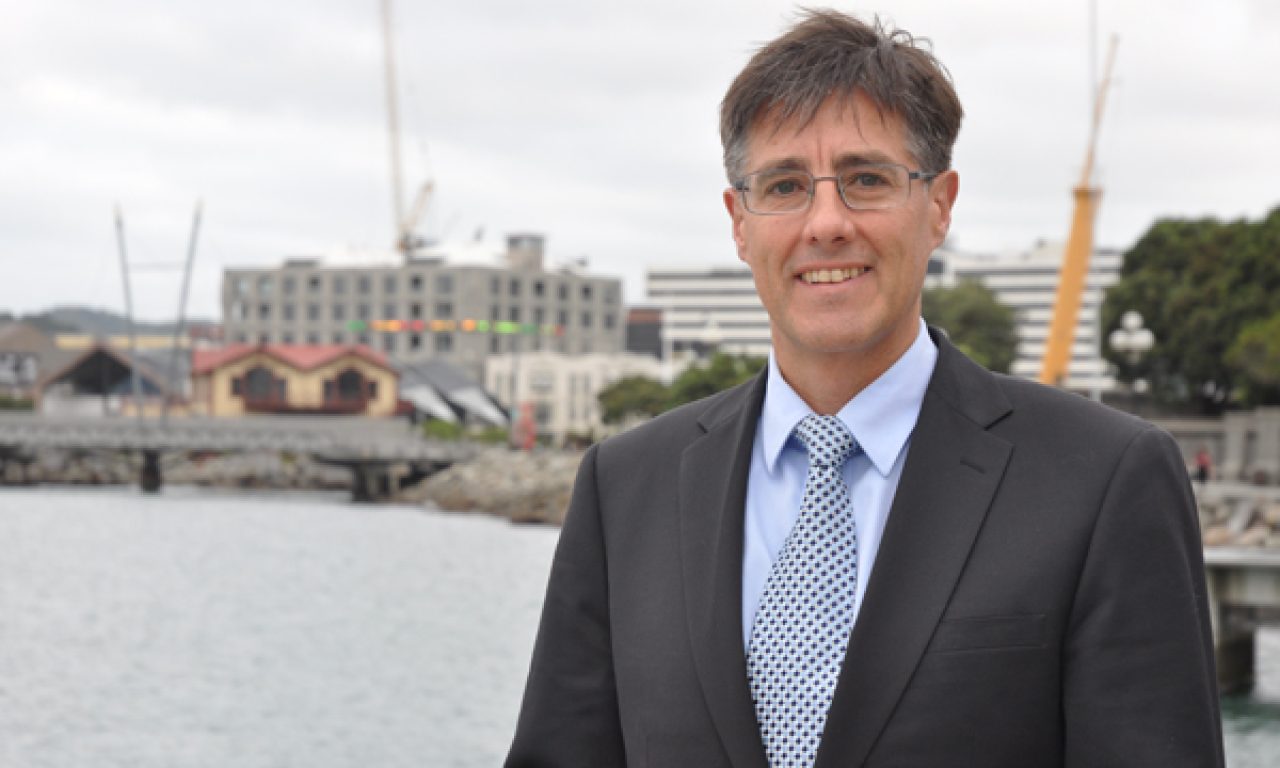A “challenging” presentation from UK-based macro-economic analysis firm, Absolute Strategy Research (ASR), has underscored the dangers facing investors in an era of low interest rates and rising recession risk, according to Andrew Bascand, Harbour Asset Management managing director.
Bascand said the gloomy analysis, delivered last week in NZ at a Harbour roadshow by ASR co-founder Ian Harnett, holds some sobering thoughts for all investors – including local fund managers riding a buoyant NZX.
ASR is forecasting a US recession (which, inevitably, spills over globally) in the first half of next year with equity markets poised to tip downwards in line with history.
Harnett told the Harbour audience that since 1950, US markets have fallen a median 20 per cent during recessions with earnings-per-share down 15 per cent and price-earnings (P/E) “multiples contracting by 5 points”.
“ASR is a very data-focused group that is neither [habitually] bull nor bear,” Bascand said. “But this is the first time [Harnett] has turned bearish – he doesn’t make many calls. We need to listen to data is telling us.”
In his presentation, Harnett said the economic downturn forecast was based on a number of observations including: growing ‘red flags’ in the proprietary ASR ‘recession dashboard’; trade war collateral damage in US manufacturing; increasingly “vulnerable” US corporates; and, a Federal Reserve cutting rates too slowly.
He said the data suggests US unemployment will rise, a trend that has been strongly-correlated in the past with falling equity and bond markets.
If a US recession does arrive it could “unwind the ‘excesses’” of the post global financial crisis (GFC) world featuring ultra low interest rates and unconventional monetary policy, Harnett said.
The ‘unwinding’ would likely see “more fiscal policy, driven by inequality, populism and dressed in Green clothing”, ASR says, and the end of political independence for central banks.
“The post-GFC world has seen a New Normal emerge of a muted economic cycles extended by loose monetary conditions and low rates – we expect that these conditions will change as the US leads the world into recession,” he said. “This will eventually demand a change in investment approach to respond to the changing macro and micro regimes but not until we are through recession.”
Bascand said the ASR research suggests that if equity markets do suffer a recession slump then investors shouldn’t “buy on the first downturn”.
He said the prospect of a recession, or simply continuing to invest in a drawn-out low interest rate era, throws up some tough questions for Australasian equities investors.
“We think interest rates are going to stay low for some time,” Bascand said. “And that makes it difficult to continue with the same investment strategies. You have to ask how would your portfolios cope if there was a recession, and how you would invest through it?”
Typically, defensive stocks that offer a reliable yield tend to do better during recessions than cyclicals, he said.
“Cyclical stocks that look cheap today will probably carry on looking cheap during a recession,” Bascand said.
Harbour has retuned its investment assumptions for the low-interest era, and potential recession, by narrowing the scope of its research on stocks that should still deliver in tougher times.
Bascand said Harbour analysis suggests that “true growth” stocks could still be worthwhile at P/Es or 30-times if interest rates remain at 1 per cent or lower.
“At the same time investors need to maintain a well-diversified portfolio, which requires active management and exposure to real assets, infrastructure or unlisted investments if you can find them at a reasonable price,” he said.
NZ equities currently trade on average at P/Es of 23-times, ASR says, with the group’s six valuation measures putting “NZ dearer than the US” and some of the “most-stretched globally”.
ASR suggests investors should be overweight US stocks and tilted to defensives and quality companies under recession assumptions “at the expensive of cyclicals, even IT”.
“Defensives will likely get more expensive as economic activity wanes,” Harnett said.
Founded in London in 2006, ASR sports a ‘black swan’ logo, illustrating the concept that “a single contrary result can prove a theory to be false”.
Against a backdrop of geopolitical instability and demographic-driven ‘mega trend’ changes, the ASR research has provided investors with “a lot to digest”, Bascand said after the lunch session.
– David Chaplin, Investment News NZ

